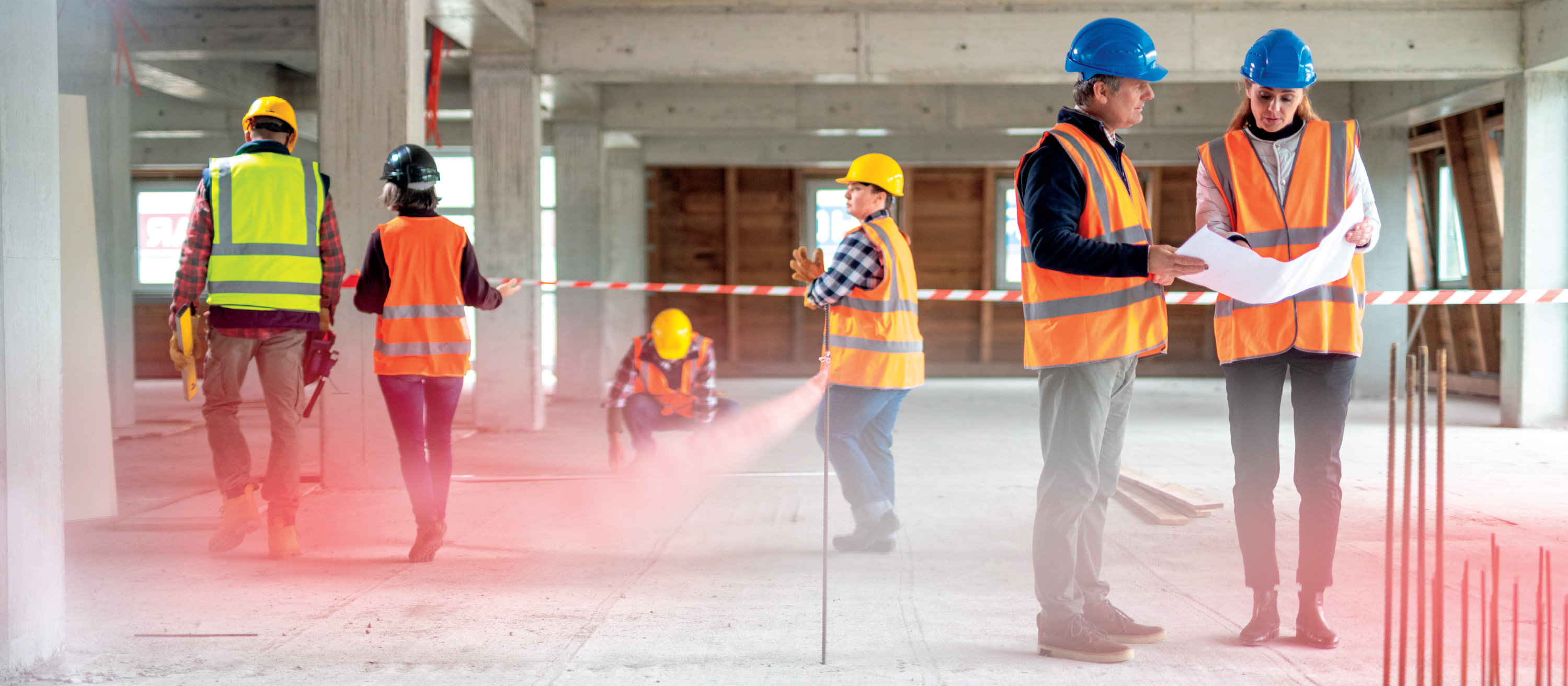Women’s experiences working in Construction and Infrastructure
The project proposes to quantify the extent and impact of discrimination and harassment for women working in Construction and Infrastructure to inform a VET solution to reduce and eliminate these behaviours over time. While the problem is well recognised anecdotally, there has been no attempt to measure and define it.
This makes it the first data driven project in Aotearoa to quantify and describe the actual situation.
The issue
The project proposes to quantify the extent and impact of discrimination and harassment for women working in Construction and Infrastructure to inform a VET solution to reduce and eliminate these behaviors over time. While the problem is well recognised anecdotally, there has been no attempt to measure and define it.
This makes it the first data-driven project in Aotearoa to quantify and describe the actual situation.
Intended outcomes
- Quantitative survey
- Qualitative interviews
- Focus groups
- Research report with analysis and recommendations for industry and VET strategies and approaches
The steps
Phase 1 ConCOVE funded
- Quantitative survey design
- Qualitative interview design
- Focus group design
- Ethics Application
Phase 2 BRANZ funded
- Deployment of survey, interviews and focus groups
- Analysis of qual and quant data
- Publication and presentation of results and recommendations
Project status and expected delivery date: In progress - May 2024 (full project December 2025)ry date:
Lead organisation: ConCOVE
Collaborators: BRANZ (co-funders), Human Right commission (advisory)
Dr Bryson’s extensive experience working with the construction sector on researching sensitive issues including mental health and suicide has taught her that industry MUST be brought along on the research journey. Her research background is in psychology with equal focus on qualitative and quantitative research.
Project Status: In Progress
Contract Research Organisation: ConCOVE

Related projects
A Theory of Change for a bystander culture in the NZ construction & infrastructure sector
Focusing on bystander intervention in the construction and infrastructure sectors

Supporting technical experts to become work-based trainers
Developing and trialing tools and resources that support work-based trainers to improve their practice

Workforce journey indicators data dashboard
A data project to understand how people navigate in and out of the construction workforce
Investigating training advisors in work-based learning in the construction and infrastructure sectors
Analysing systemic forces for workforce development alongside
Offsite manufacturing workforce forecast
Forecasting the size of the offsite manufacturing workforce required across the next 5-10 years

Civil Construction: A requirement for a robust and reliable training pipeline
Providing recommendations to combat the skilled labour shortage
A more effective model of support for Māori Level 4 Carpentry apprentices – reducing the time it takes to get qualified
Using kaupapa Māori interventions to increase the number of qualified Māori builders

Environmental competency training
Ascertaining the specific skills required to meet the government’s environmental goals
Framework for Māori in high-skill roles
Understanding skills shortages experienced by Māori firms to support Māori into high-skill roles

From skilled industry practitioner to Kaiako
Analysing the current kaiako training to identify effective practices in classroom-based tertiary education
Evaluation of government policy settings for apprentices
Understand the extent to which government apprenticeship policy settings are working
Skills standards
Good Practice in the Development and Implementation of Skill Standards-Based Qualifications
Neurodiversity
Neurodiversity
The place of micro-credentials in New Zealand
The place of micro-credentials in New Zealand
Pathways to Successful SMEs
Pathways to Successful SMEs
A Case Study: Cook Brothers Apprentice Academy
A Case Study: Cook Brothers Apprentice Academy

AI Generated Assessment
Using artificial intelligence to create high-quality, engaging, and personalised assessments
Funding of workplace training and work-integrated learning for the construction and infrastructure industries
Funding of workplace training and work-integrated learning for the construction and infrastructure industries

VET in schools: towards a model for Year 12 & 13 in New Zealand schools
VET in schools: towards a model for Year 12 & 13 in New Zealand